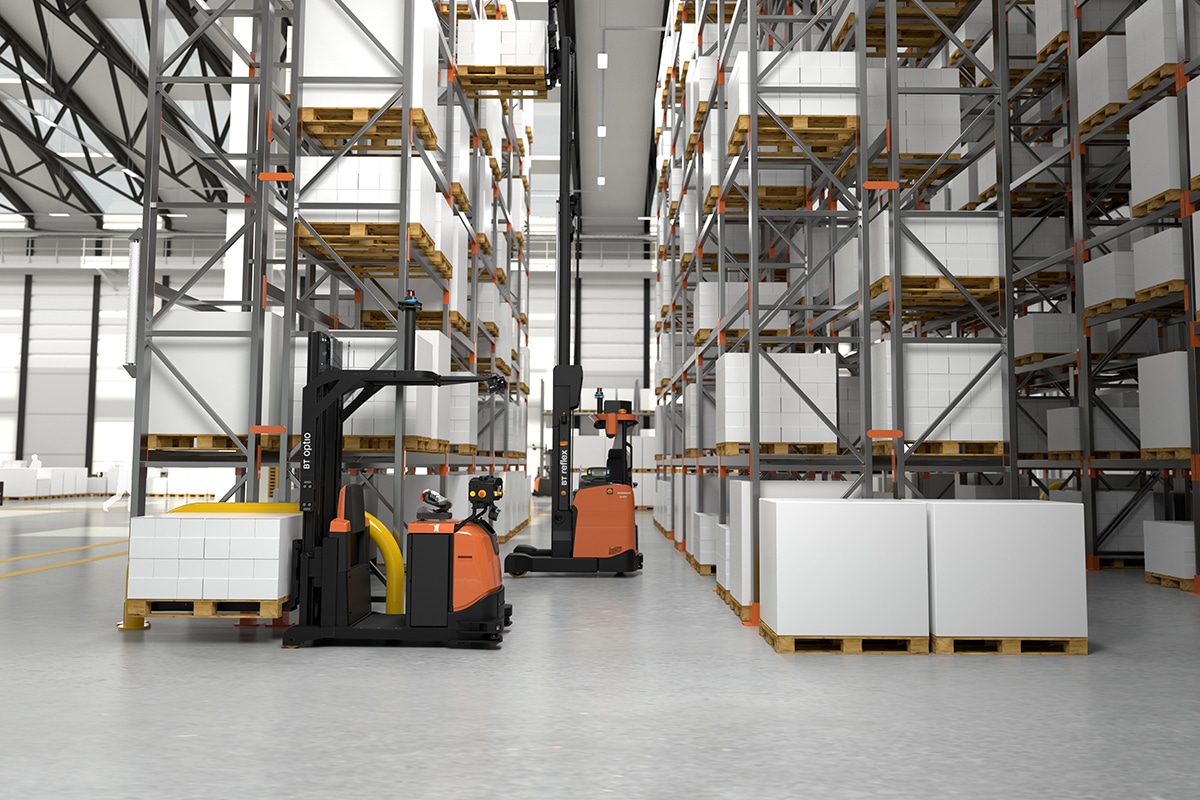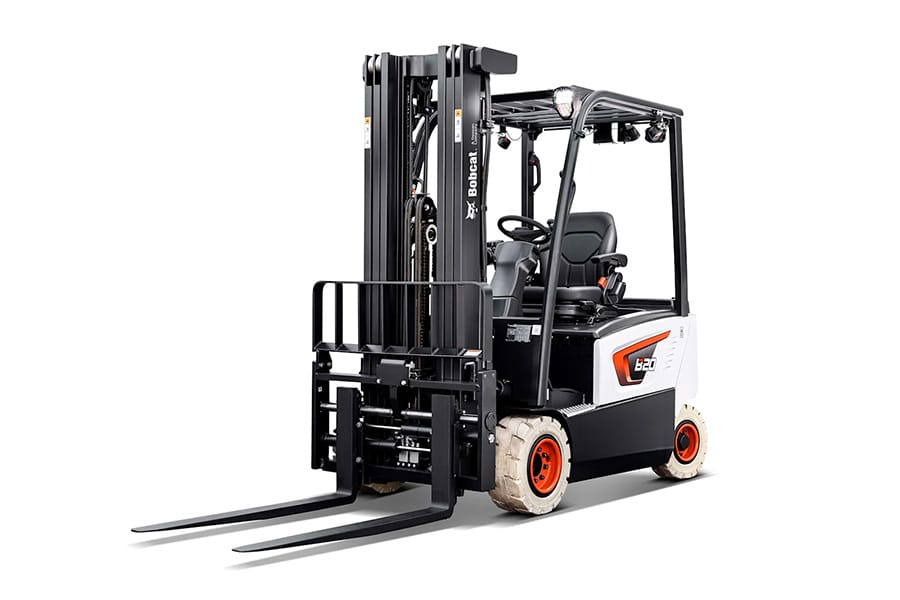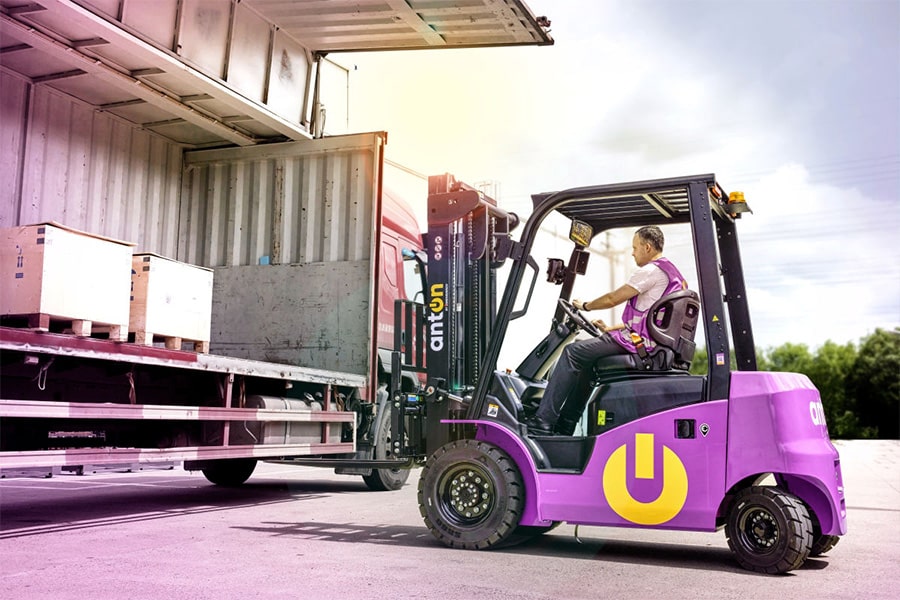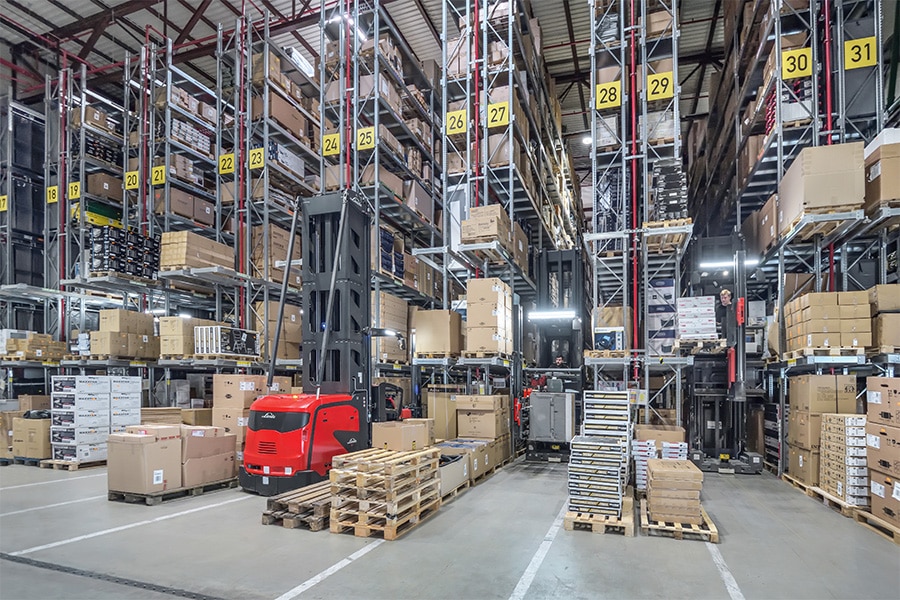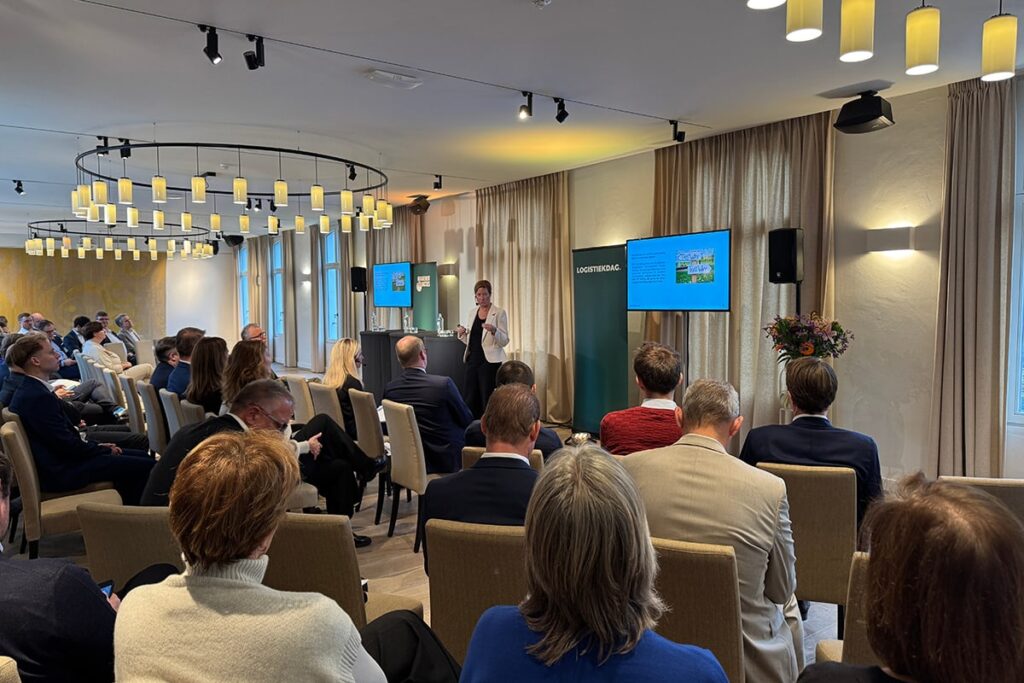
Future-proofing logistics: not a final destination but a journey
8e Logistics Day Belgium edition focuses on sustainability, transparency and resilience
On Nov. 14, 2024, the Logistics Day Belgium took place in Antwerp, an inspiring conference that discussed the major challenges and opportunities in the logistics sector. The central theme of the day was "Sustainable, transparent and resilient. That theme was more than relevant given geopolitical tensions, energy transition and the rapid rise of artificial intelligence (AI). From clients to suppliers, the conference brought together professionals from across the logistics chain to ensure the future resilience of their organizations. With a mix of a plenary program and interactive in-depth sessions, the conference delved deeply into the key themes affecting supply chain and logistics today.
Leading in times of disruption
The conference highlighted the importance of visionary leadership, especially in times of disruption. Anne van de Poel (Supply Chain Director Northern Europe, Bonduelle) was the keynote speaker on this topic. She indicated that leaders must adapt to current changes by focusing on trust and empowerment. "You have to find a balance between long-term thinking and developing a North Star to guide your organization," she said. According to Anne, it is important for leaders to show vulnerability and help their team develop new skills and capabilities. From the audience came the question of how to deal with Gen Z, who join a company with a different motivation. In that case, it is essential to foster open communication, establish work rules together and strive together to improve the organization.
Impact of geopolitical disruptions
A major topic of the day was the impact of geopolitical developments on logistics. Supply chain expert Alex Van Breedam, the moderator of the Logistics Day Belgium, stated that in many cases sourcing materials remains a problem due to geopolitical instability. Kevin Verbelen (Agoria), a supply chain expert, gave an example of a Chinese company that stocks a year's supply of excavators.
In the future, that could lead to overstock in Europe due to U.S. trade restrictions. "If you are dependent on your supply chain and legislation, nearshoring can be a solution," Kevin said. However, he cautioned that increasing the number of production locations could drive up costs, making "local for local" a wiser option than friendshoring. Despite the challenges, Kevin emphasized new opportunities. Consider the increasing need to recycle waste in Europe (because exporting it is becoming too expensive, n.v.d.r.), which could lead to new markets. "It is becoming sexy again to own assets," stated Yves Letange, Managing Director Europe at PSA BDP, emphasizing the shift from just-in-time to just-in-case.
Key to CO2-neutral future
Sustainability obviously played a prominent role at Logistics Day Belgium. Anke Roeyen, Associate Director Strategic Projects at Coca-Cola Europacific Partners (CCEP), shared her organization's ambitious goal of being net zero by 2040, and this for scope 1, 2 and 3 emissions. "90 percent of our emissions are indirect, so collaboration with suppliers is crucial," Anke emphasized. The main focus here was on reducing emissions through collaboration in the broader supply chain. Serge Gregoir, CEO of Eutraco, spoke about the decarbonization of transportation and the role of "coalitions of the willing" in investing in electric trucks. "We are convinced that this is the right choice for the future," he said, noting that the investment will pay off in the long run. This shows that sustainability is not only an ethical choice, but can also be a strategic and financial one.

The logistics chain of the future
In a session on the logistics supply chain of the future, it became clear that logistics is increasingly a journey rather than a destination. Ann Vervecken, Global Head of Value-Based Pricing for Multiregional Accounts at DHL, argued that future-proof supplychains are not an endpoint but a journey: a continuous process of adaptation and improvement. In this context, the role of collaboration was emphasized: companies need to work not only internally but also with external partners to create flexible, efficient and sustainable supply chains. The emphasis was not on achieving quick wins, but on working together strategically for long-term benefits, with a focus on CO2-reduction and realizing economies of scale. At DHL, they look at what value they can really add to the customer to set the price with that customer.
Automation and efficiency
The topic of automation in logistics was discussed extensively during the session on the "warehouse of the future. Tommy Niemierowski (IKEA) noted that Belgians are still very much focused on traditional cash & carry models, while the rest of the world is moving faster to online orders. That has an impact on automation. Bryan Beutels, who made the move this summer from a major logistics provider to technology company Element Logic Benelux, indicated that the key to the future is efficient automation. "The faster we can invest in sustainability and efficiency, the faster we will move forward," he stated. According to Bryan, the future of automation should be seen as a stepping stone. More companies would be better off taking small steps in warehouse automation. They can build on that later to create more value with fewer resources.
Jumping on the bandwagon of innovations
Professor Roel Gevaers, session chair, came up with some valuable takeaways. "The main lesson today is that generative AI, on an international level, is already helping companies make supply chain decisions. We can do even more with that in Belgium." He also emphasized the growing role of transportation companies to invest in generating their own energy. Initially this is a big cost, but it certainly offers a lot for the future. These innovations, along with the growing impact of geopolitical developments, will further transform the logistics sector in the coming years. Alex Van Breedam, Tri-Vizor CEO and professor, emphasized the shorter supplychains we are likely to see due to upcoming tax measures and the shorter distances companies will travel. "The big question is whether we can find a lever to shorten supplychains at the same time as making them more sustainable to offset higher valuations," Alex said. So the future of logistics lies in finding smart solutions that both reduce the carbon footprint and operational
improve efficiency.
Taking impactful steps together
The Logistics Day Belgium in Antwerp brought valuable insights on how companies can prepare for the future in an ever-changing world. Sustainability, transparency, collaboration and technology, play a crucial role in future-proofing supplychains. The key to success lies in taking small but impactful steps that can be taken collectively to make logistics more sustainable, efficient and resilient. With the right leadership and collaboration, companies can not only overcome today's challenges, but also prepare for a more successful and sustainable future.
Do you want to be there at the 9th edition of the Logistics Day Belgium? Then mark October 23 already now in your brand new calendar for 2025!
